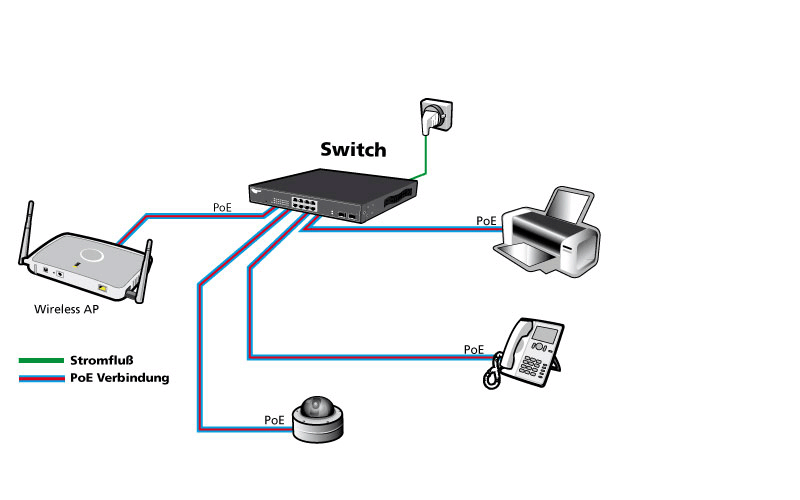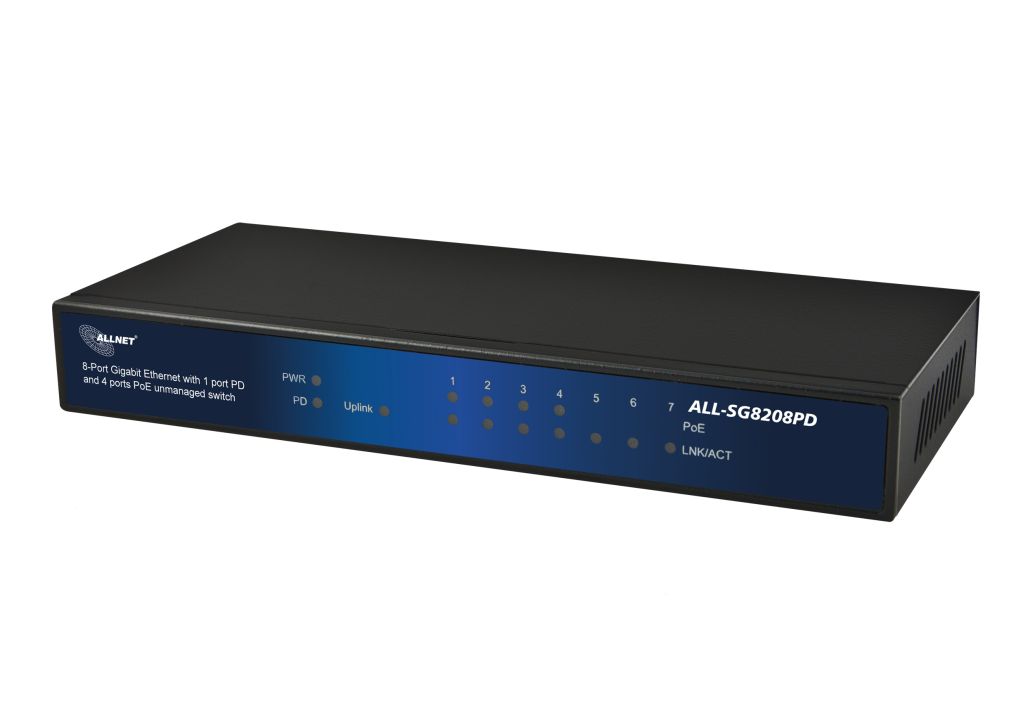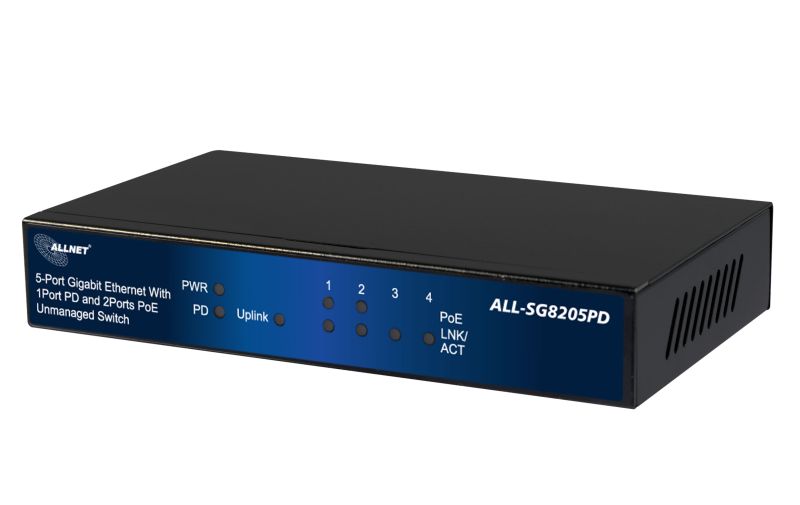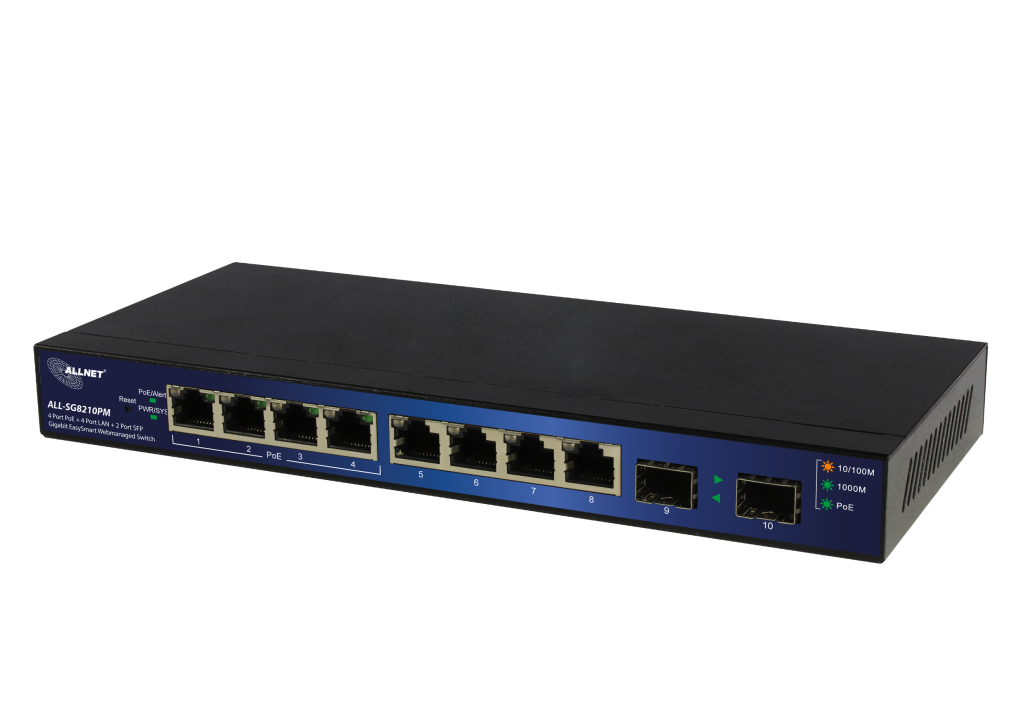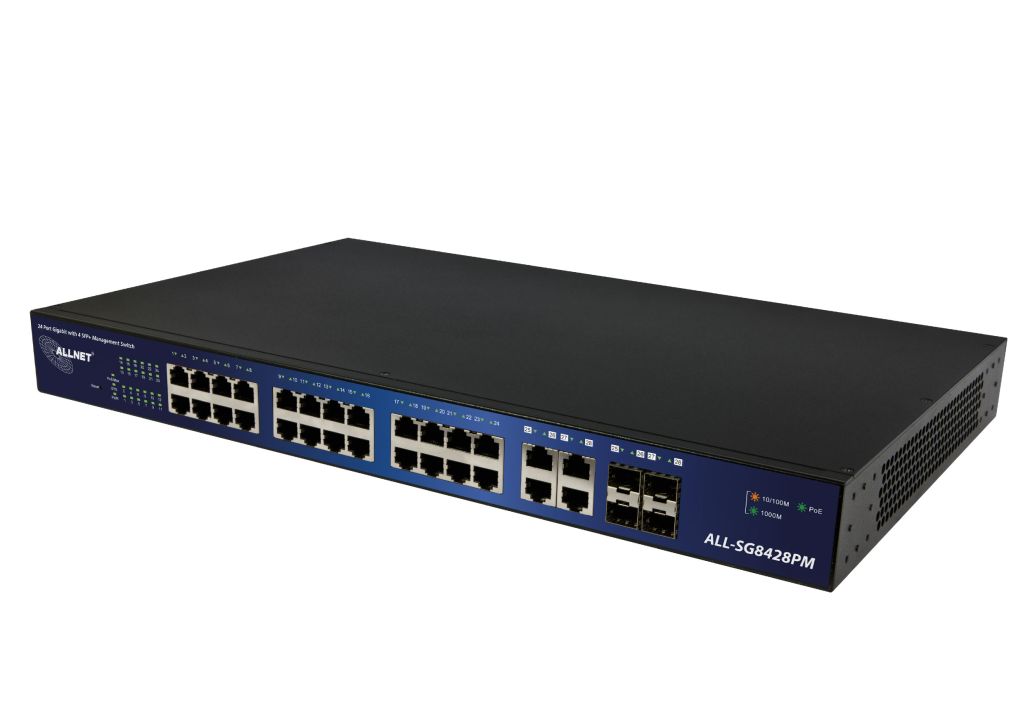ALLNET Power over Ethernet Switches
Each Allnet PoE switch has after the standard IEEE 802.3af PoE on port outputs with 15.4 watts, the most switches in addition to IEEE.3at up to 30 watts per port. Depending on the PoE overall performance of the device.
An overview of all our PoE switches with the respective features, please click here: DOWNLOAD
PoE cascading between the PoE switches is possible.
Unmanaged Switche
Smart Managed Switches
The future clearly lies in the management switches. Due to the ever increasing complexity of networks, it is becoming increasingly important given ports assign special functions. Also, certain services such as QoS, Quality of Service, or the VLAN function are indispensable.Our ALLNET switches provide a wealth of services to ensure maximum flexibility.
| |||
| |||
|
Full Managed Switche Layer2+
Compared to standard smart switches, fully managed switches usually have the option to configure the switches via CLI command line interface in addition to the HTML webgui. ALLNET's full-managed switches are Layer2+ switches. In addition, managed switches offer network storm control, denial-of-service protection and more.
From a security perspective, managed switches provide data plane protection (user traffic is forwarded), control plane protection (traffic is communicated between network devices to ensure that user traffic reaches the correct destination) and management plane protection (traffic is used to manage the network or device as such). In addition, managed switches provide network storm control, denial-of-service protection and more.
Access control list features allow flexible discarding, rate limiting, mirroring or logging of traffic by L2 address, L3 address, TCP/UDP port number, Ethernet type, ICMP or TCP flags, etc.

